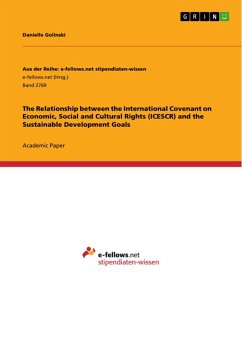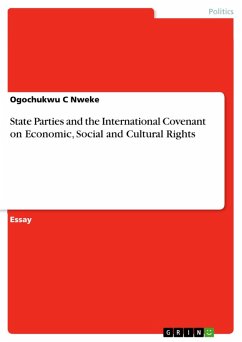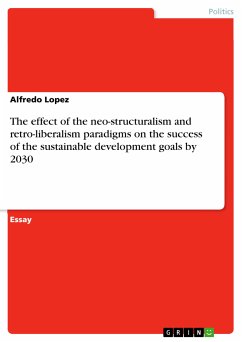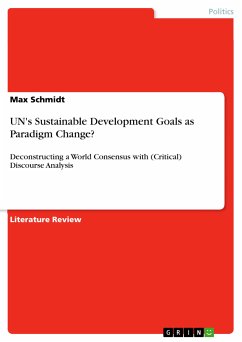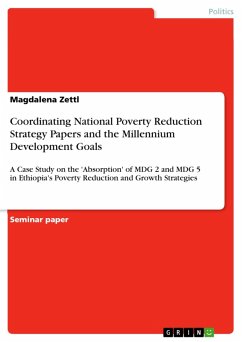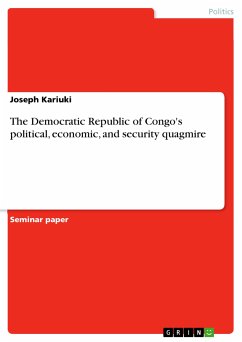Academic Paper from the year 2017 in the subject Politics - Topic: International Organisations, grade: -, Stellenbosch Universitiy, language: English, abstract: Facing global challenges like armed conflicts, climate change and scarcity of resources, the UN as a platform for the international cooperation and global peace still is of majour significance. During the last decades, the focus of its work has shifted to legally non-binding agendas, most recently the Sustainable Development Goals (SDG), which stand in the focus of their time and address sustainability. The greatest weakness of the work of the United Nations is its poor enforcement due to legally non-binding documents. This is also a weak point of the Sustainable Development Goals. As the agenda is contained within a legally non-binding UN Resolution, it is at the specific state's discretion whether and to what extent the SDG are implemented. In these terms, the Goals show a deficit compared to binding human rights treaties within the UN human rights system. This system is based upon the Universal Declaration of Human Rights, the International Covenant on Civil and Political Rights (ICCPR) and the International Covenant on Economic, Social, and Cultural Rights (ICESCR), which is together known as the Bill of Rights and celebrated its 50th anniversary in 2016. The question arises, whether and how existent legally binding UN sources could support the implementation of the non-binding Sustainable Development Goals. As the Goals also address issues of individual's economic, social and cultural life, the ICESCR could be a suitable guideline for implementation, assuming that the SDG focus on the same content as the Covenant, which are economic, social and cultural rights. In turn, the question arises whether the Sustainable Development Goals as a contemporary and modern work of the United Nations, could impact the long-established covenant. In order to examine these questions, this thesis will analyse the interelationships between the ICESCR and the new Sustainable Development Goals.
Dieser Download kann aus rechtlichen Gründen nur mit Rechnungsadresse in A, B, BG, CY, CZ, D, DK, EW, E, FIN, F, GR, HR, H, IRL, I, LT, L, LR, M, NL, PL, P, R, S, SLO, SK ausgeliefert werden.

